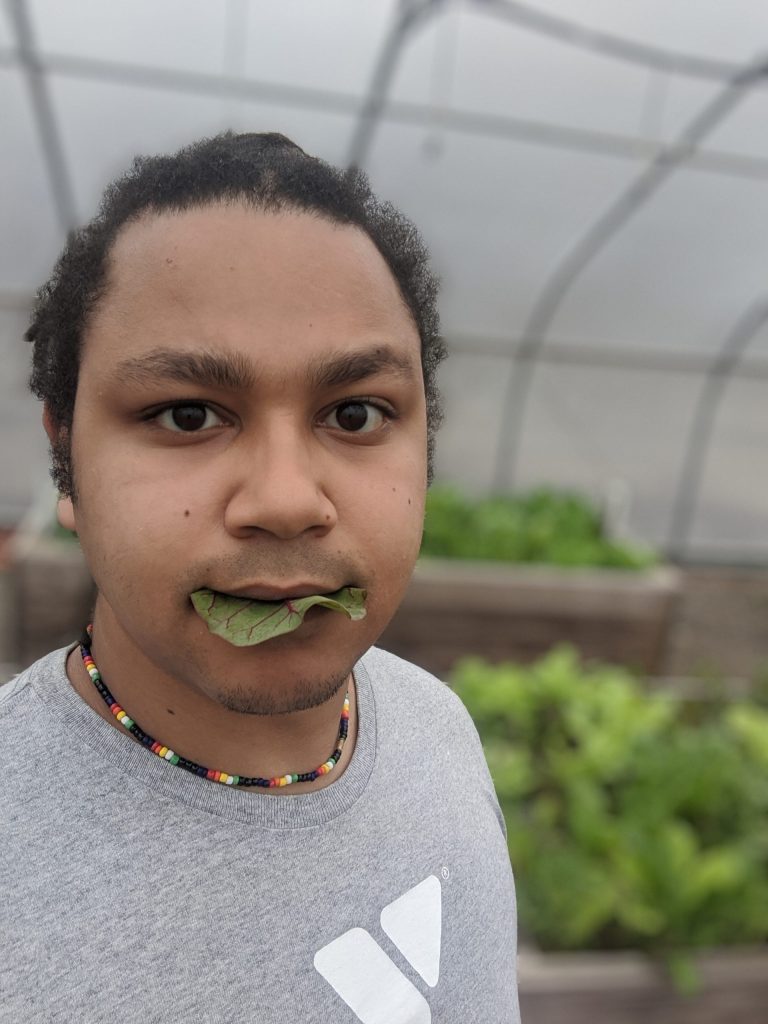Community Stories – AJ

Community Stories: Life During COVID-19
Here is Post-Waste Worm Farm owner AJ Delgadillo’s story :
I’m drawn to the library because it is a resource that serves many people in many different ways. I remember when I was in middle school coming in because it had AC and my house didn’t. I’ve facilitated conflict dialogue there as it’s a neutral space. I think my current appreciation for the library came from learning to take care of worms. I learned a lot in undergrad, but when I learned to take care of worms, I learned from facebook pages and discussion boards. Many people experimenting and reporting and learning together was a model of building and dispersing information that I hadn’t really thought about. It’s a model that emphasizes curiosity and collaboration and I think that’s most of what the Library stands for, facilitating the learning that naturally happens when you connect passionate people with curious people.
After the closures of many entities in Goshen, the immediate impact was “oh no, are they still going to need me for a team-building workshop?” I was following the news very closely once I realized there were many people in the US infected and that there was a two week lag in information, I knew containment was unlikely and I tried to mentally prepare. Whatever I prepared for is not the version of life we are in right now. I had quit my day job in November, I was in a place where my emergency savings were running thin, and I was trying to get an independent consulting business built up. It’s hard to facilitate meetings when suddenly no one is meeting. My independent projects dried up, there were few job opportunities, and I was locked out of unemployment benefits. Thankfully I did find some work, but nothing that could make up the loss of my professional income.
Since then, I took two agricultural jobs so my routine was focused on work. What has surprised me during these last weeks is how partisan truth has become. What I miss from before are Maple Indian Buffet and Chinese Buffet; but mostly Maple Indian.
I see people making changes to be more self-sufficient. People are cooking at home, people are gardening, and taking up other sustaining hobbies. We have a unique opportunity to build local self-sustaining networks that are resilient in a changing world. Our global supply chain is built off of exploitation of workers around the world and exploitation of the earth itself. By rebuilding our social and economic structures to value cooperative self-sustenance, we can make significant progress on the social, economic, and environmental threats to human life on the planet earth.
Click here to find more Community Stories
